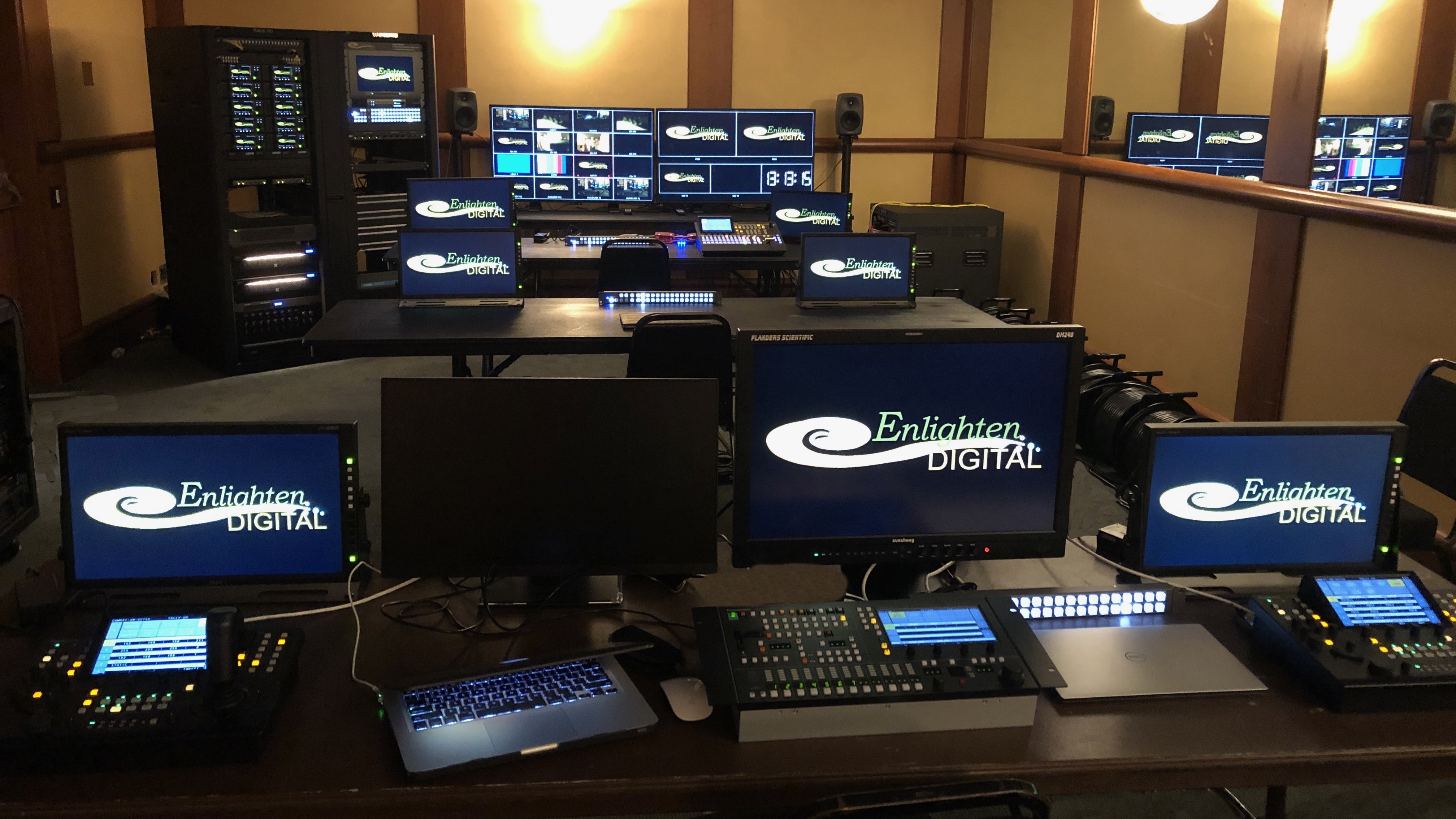MultiDyne’s 12G openGear Solutions Amplify Fiber Transport for Symphony
San Francisco Symphony worked with MultiDyne on concert production connections

SAN FRANCISCO—While the pandemic has temporarily changed live entertainment, it hasn’t fully ceased. In the classical music world, organizations such as the San Francisco Symphony have continued to perform for audiences through digital platforms.
These organizations will hopefully return to performing for live in-venue audiences before too long, but regardless of how they deliver live performances, they still require professional video and audio systems.
The 2,700-seat Louise M. Davies Symphony Hall is home to the San Francisco Symphony and until recently had very limited production capabilities. Working with Enlighten Digital and systems integration partner Sunshine Audio Video, the symphony quickly went from zero to 14 cameras, and built a new control room to support live production and recording. Enlighten Digital raised the bar by specifying a 12G uncompressed fiber transport and signal conversion infrastructure from MultiDyne.
KEEPING EVERYTHING CONNECTED
The infrastructure is impressive, with 32 strands of fiber available to transport signals from all 14 Panasonic PTZ cameras. Each camera is equipped with a 250-foot spool of cable with fiber for connectivity in three areas: the main performance hall, a small studio and the “soundbox,” a smaller adjacent venue. Each area has direct fiber home run to the new central control room, which includes a green room.
Depending on the size of the event, one of three mobile equipment racks are used; the smallest can accommodate four cameras and the largest all 14, along with monitors and other gear. A mix of MultiDyne’s modular openGear fiber solutions accommodates the varied transport and conversion needs, including OG-4603 transmitter cards, OG-4607 receiver cards and OG-5310 video distribution amplifiers. We also use MultiDyne’s CWDM card, which can multiplex multiple cameras over one fiber to optimize signal transport.
The CWDM (course wavelength division multiplexer), has the added benefit of supporting Panasonic’s 12G optical camera output option. MultiDyne developed properly matched CWDM SFPs for each camera to ensure consistency when taking in multiple 4K signals from multiple cameras. These 12G video signals are multiplexed and then sent into the OG-4603 card, along with AES audio, genlock, timecode and serial data.
MIX AND MATCH
MultiDyne’s diverse feature set and capabilities were instrumental in our decision. While other vendors provide plenty of options for throwdown boxes, we wanted a more elegant and flexible solution. A bidirectional, multipoint fiber transport system like this would require multiple throwdown boxes and auxiliary devices.
MultiDyne’s openGear solutions allow technicians to mix and match cards within and share frames across different racks as needed. That provides commonality beyond any other fiber transport on the market, with the added benefit of using openGear’s Dashboard to monitor performance and make adjustments on the fly directly from a laptop.
MultiDyne’s technical support was also critical to our success. Due to a deadline, we were unable to perform our typical testing and commissioning process at the venue. MultiDyne’s sales and engineering team were available on short notice, and helped us deal with the technical challenges.
Rob Ross is the president of Enlighten Digital. He can be reached at rob@enlightendigital.com.
For more information, visit www.multidyne.com.
Get the TV Tech Newsletter
The professional video industry's #1 source for news, trends and product and tech information. Sign up below.
